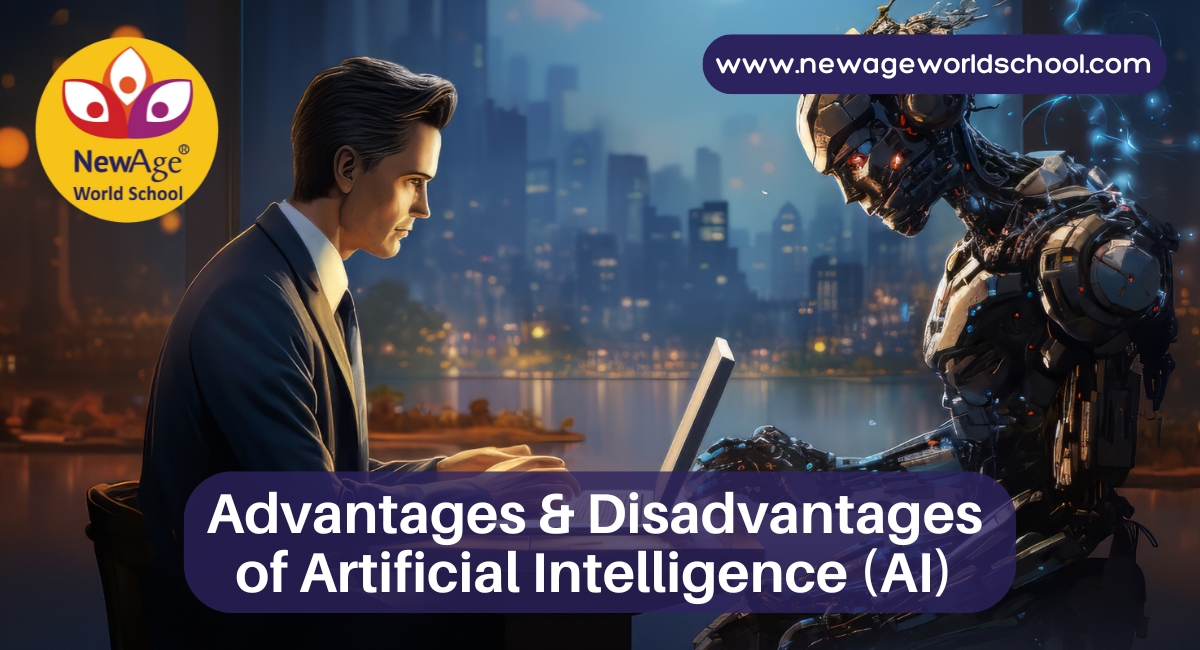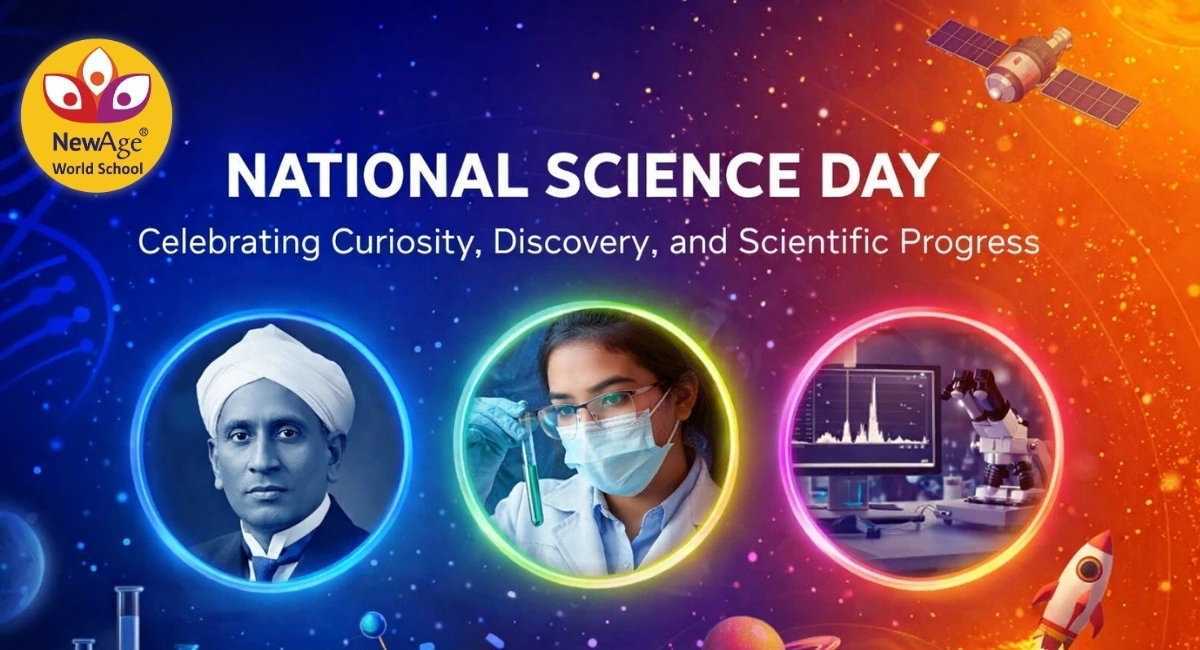Advantages and Disadvantages of Artificial Intelligence (AI) – 2025

Table of content
Introduction
What is Artificial Intelligence (AI)?
How Does Artificial Intelligence Work?
What are the Uses of Artificial Intelligence?
What are the Advantages of Artificial Intelligence?
What are the Disadvantages of Artificial Intelligence?
Conclusion
FAQs
Introduction
In the modern world, Artificial Intelligence has become a part of our daily lives. From smart assistants to self-driving cars, AI is transforming how we work, learn, and live. But with every new innovation comes both opportunities and challenges. In this blog, we will explore the advantages and disadvantages of Artificial Intelligence, helping you understand its impact on society and its future potential. Let us dive into the good, the bad, and everything in between.
What is Artificial Intelligence (AI)?
In simple terms, Artificial Intelligence refers to machines that can mimic human intelligence. These machines are designed to learn, think, and make decisions, often faster and more accurately than humans. For instance, when you talk to Siri or Alexa, you are interacting with AI that understands your voice commands and provides helpful responses.
The concept of AI is powered by technologies like Machine Learning and Deep Learning, which allow systems to improve over time. These advancements have led to various examples of Artificial Intelligence, such as virtual assistants, chatbots, and even self-driving cars. It is fascinating how AI helps in areas ranging from healthcare to education.
How Does Artificial Intelligence Work?
The backbone of Artificial Intelligence is its ability to learn from data. AI systems use Machine Learning, a process where machines analyze patterns in data to improve their performance. For instance, a weather prediction model uses past climate data to forecast future conditions.
On the other hand, Deep Learning takes this a step further by simulating how the human brain processes information. This helps AI systems identify complex patterns, like recognizing faces in photos or translating languages in real-time. Together, these technologies make AI smarter and more reliable, helping to improve productivity in various fields.
What are the Uses of Artificial Intelligence?
AI is used in many industries, making life easier and more efficient. Here are some of the major areas where AI is making an impact:
- AI in banking: Managing transactions and detecting fraud.
- AI in medicine: Assisting doctors with diagnoses and surgeries.
- AI in industries: Automating production and ensuring safety.
- AI in transportation: Supporting self-driving cars and air traffic systems.
- AI in gaming: Creating smarter, more challenging opponents.
- AI in education: Helping students with personalized learning.
The banking sector heavily relies on Artificial Intelligence to manage operations efficiently. AI helps detect fraud by analyzing patterns and identifying unusual activities. For instance, if a credit card is used in two different countries within minutes, AI flags this as suspicious.
Apart from security, AI-powered chatbots assist customers 24/7. These bots answer questions, handle complaints, and even guide users in applying for loans. In short, AI in banking saves time, improves security, and enhances customer experience.
1. Use of Artificial Intelligence in the Medical Sector
AI in medicine has revolutionized healthcare. Machines equipped with AI assist doctors in diagnosing diseases with precision. For example, AI can analyze medical images to detect cancer at an early stage.
Additionally, robots in hospitals perform complex surgeries, ensuring accuracy and reducing recovery time for patients. AI also helps manage patient data, making it easier for doctors to access critical information when needed. These innovations showcase the benefits of AI in daily life, especially in healthcare.
2. Use of Artificial Intelligence in the Industrial Sector
AI in industries has significantly increased productivity. From automating assembly lines to monitoring equipment for potential failures, AI makes manufacturing processes smoother.
Safety is another advantage. Machines powered by AI can handle hazardous tasks, reducing the risk of accidents. Companies also use AI to track employee performance and manage data efficiently, ensuring deadlines are met with precision.
3. Use of Artificial Intelligence in the Transportation Sector
Self-driving cars are the perfect example of AI in transportation. These vehicles use AI to navigate roads, avoid collisions, and ensure passenger safety.
In air travel, AI manages flight schedules, tracks aircraft conditions, and improves overall efficiency. AI-powered systems also assist in reducing traffic congestion by optimizing traffic lights in real time, making travel faster and safer.
4. Use of Artificial Intelligence in the Gaming Sector
AI has transformed the gaming industry. Modern video games use AI to create realistic characters and challenging gameplay. For example, when you play against a computer opponent, AI analyzes your moves to adapt and improve its strategy.
Virtual reality games also rely on AI to make gaming experiences more immersive. This technology brings life-like visuals and interactive environments, making games more engaging than ever before.
5. Use of Artificial Intelligence in the Education Sector
The role of AI in education is growing rapidly. Virtual tutors help students by providing personalized lessons tailored to their learning pace.
Moreover, tools like Optical Mark Recognition (OMR) simplify grading multiple-choice tests, saving teachers time. The impact of AI on education is significant, enabling schools to adopt advanced teaching methods for better results.
Also Read: The Role of AI in Shaping the Future of Education and Learning
What are the Advantages of Artificial Intelligence (AI)?
1. Efficiency
Artificial Intelligence is designed to handle tasks at a much faster rate compared to humans. Whether it is analyzing massive amounts of data or automating repetitive tasks, AI ensures efficiency that saves time and resources. For example, AI-powered systems can process financial transactions within seconds, helping businesses operate smoothly without delays. This kind of speed enhances productivity across industries like banking, healthcare, and logistics.
Additionally, AI systems work without breaks or fatigue, unlike humans. They can perform 24/7 without compromising on performance. This constant operational capability makes AI a valuable asset for businesses that require round-the-clock functionality, such as customer service chatbots or monitoring systems in factories.
2. Accuracy
One of the standout features of Artificial Intelligence is its ability to perform tasks with exceptional precision. In fields like healthcare, AI tools help doctors identify diseases in their early stages by analyzing medical images with near-perfect accuracy. This minimizes human error, potentially saving lives.
Similarly, in financial sectors, AI algorithms detect fraud by analyzing transactional patterns, something humans might miss. The reliability of AI systems ensures fewer mistakes and better outcomes, making them indispensable in areas where accuracy is critical. By reducing errors, AI builds trust and delivers results that are often superior to manual efforts.
3. Cost-Effective
Although implementing AI systems requires a significant initial investment, they prove to be cost-effective in the long run. By automating repetitive tasks, businesses can reduce labour costs. For instance, using AI-powered customer service bots eliminates the need for large support teams while maintaining a high standard of customer interaction.
Moreover, AI systems optimize operations, reduce waste, and improve resource allocation. This efficiency not only saves money but also allows companies to redirect funds toward innovation and growth. With the advantages of Artificial Intelligence, companies can achieve more while spending less over time.
4. Personalization
AI has transformed the way businesses interact with customers by enabling personalized experiences. Streaming platforms like Netflix and Spotify use AI algorithms to recommend content based on user preferences, ensuring a more engaging experience. This level of personalization helps businesses build stronger relationships with their audience.
In e-commerce, AI analyzes browsing and purchase history to suggest products that align with customer interests. These tailored recommendations drive sales and improve customer satisfaction. By offering customized solutions, AI improves productivity while meeting individual needs, making every interaction feel unique and relevant.
What are the Disadvantages of Artificial Intelligence (AI)?
1. Job Losses
One of the most debated drawbacks of Artificial Intelligence is its impact on employment. As AI systems take over repetitive and manual tasks, many jobs, especially in industries like manufacturing and customer service, are at risk of being automated. For instance, assembly line workers are being replaced by robots, leading to significant job cuts.
This automation trend creates a gap between skill requirements and workforce capabilities. While AI generates new opportunities in tech-related fields, the transition leaves many workers unemployed, particularly those without the necessary skills to adapt to a rapidly changing job market.
2. High Costs
While AI is cost-effective in the long term, the initial expense of development and implementation can be a burden. Building and deploying AI systems require advanced hardware, software, and skilled professionals, all of which are expensive. Small businesses often struggle to adopt AI due to these high costs.
Additionally, maintaining and upgrading AI systems is an ongoing expense. Any breakdown or malfunction can lead to costly repairs, further adding to the financial strain. These barriers limit the accessibility of AI, making it a luxury for larger corporations rather than a universal solution.
3. Dependence
As society integrates AI into daily life, there is a growing concern about overdependence on technology. Tasks that once required critical thinking or human effort are now automated, leading to a decline in problem-solving skills. For instance, navigation apps have made it unnecessary for people to remember routes or use maps.
This reliance on AI can backfire if systems fail or encounter errors. A malfunctioning AI tool could disrupt entire operations, highlighting the risks of depending too heavily on technology. Balancing human input with AI capabilities is essential to avoid over-reliance.
4. Ethical Concerns
The rise of AI has brought ethical challenges into focus. Data privacy is a major issue, as AI systems often require vast amounts of user information to function effectively. Misuse of this data can lead to breaches of privacy, as seen in cases where companies exploit personal data for profit.
Furthermore, AI can be biased if it is trained on skewed data, resulting in unfair decisions. This is particularly problematic in areas like hiring or lending, where AI might unintentionally discriminate against certain groups. Addressing these ethical concerns is crucial for ensuring that the future of Artificial Intelligence is fair and transparent.
Conclusion
Artificial Intelligence is a double-edged sword. While it offers incredible opportunities to improve productivity and simplify tasks, it also comes with challenges that need to be addressed. As we move into the future, it is essential to strike a balance between innovation and responsibility.
The future of Artificial Intelligence looks promising, with advancements in self-driving cars, healthcare, and education. However, understanding its limitations is equally important to ensure its safe and ethical use.
Frequently Asked Questions
What is the future of Artificial Intelligence?
AI will continue to evolve, offering advancements in transportation, healthcare, and personalized services.
How does AI improve productivity?
AI automates repetitive tasks, reduces errors, and processes data faster than humans, leading to increased efficiency.
What is Artificial Intelligence?
Artificial Intelligence refers to machines designed to perform tasks that typically require human intelligence.

















Leave a Reply
Your email address will not be published. Required fields are marked *
Comments
No comments available